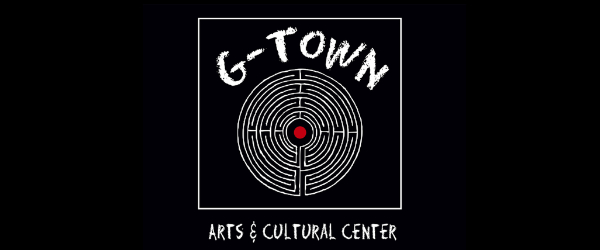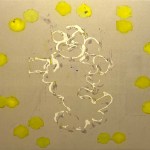
At breakfast, Asher said to Rose, “I’ve been invited to give a talk at VCU.”
“Uh huh, what’s that?”
“What’s that?”
“What’s VCU?”
“Virginia Commonwealth University.”
“Never heard of it. What city?”
“Richmond.”
“Jesus, isn’t that the place with the monument problem?”
“That’s the place, but the monuments are gone now.”
Rose looked up from her phone search and said, “Richmond … it was the capital of the Confederacy. You really want to go there?”
“The art school’s supposed to be one of the best in the country.”
“Whatever.” She put two slices of bread in the toaster and said, “That’s a big trip.”
“An hour and a half, non-stop from LaGuardia.”
“You haven’t travelled since Covid began; you sure you’re up for it? A crowded airport, a packed plane, crazy-ass passengers.”
“I think it’ll be good to get out. We’ve been trapped here forever. And the CDC says the virus is abating.”
Rose thought, if they could have afforded to relocate to Hudson, Sag Harbor, or wherever, like everyone else they knew, they’d have been long gone. “Abating. I doubt that. With all the home-testing, they can’t possibly know how much virus is out there….Who made the invitation?”
“Norah … Norah …”
Rose stopped buttering her toast, looked at Asher, and said, “Sato?”
“Yes, Norah Sato.”
“The cute little one. Don’t tell me she’s teaching now?”
“She’s an Assistant Professor. And she has two kids!”
“That seems impossible! When was the last time you saw her?”
“I don’t know, maybe around five or six years before I retired.”
Rose said, “That’s over twelve years ago. Amazing. She was one of the sweet ones,” but she wondered, don’t these former students know what happens when one grows old? Maybe they’re still too young to have senior parents. Hello, Norah! Asher today is not the Asher you remember from grad school. One day soon, Rose thought, they’ll be emailing the dead Asher. It’s not that he’s senile, no, not at all, but something’s not right—Rose couldn’t help but notice, after all, they’d been stuck in the apartment together for two years now. They’d never discussed Asher’s condition with a doctor, never discussed it with anyone. And Rose never said, “Ash, you ought to have a chat with Doctor Ibrahim about the incidents.” No, she’d never gone there. Rose suspected the solvents and the cadmium colors—the painting materials he’d handled and inhaled for fifty fucking years. But whatever—toxic materials, senility, dementia, stroke, Alzheimer’s— did it really matter? It is what it is.
At 78 Asher had enjoyed more than his share of life; they both had. Besides, she had her own issues to worry about. Rose wasn’t a complainer. She was okay with whatever life tossed her way. She’d never confronted Asher. Didn’t want to experience any ranting denials. And the truth is, most of the time he was fine—good as gold, as they say—but then again, there were the incidents, the mortifying incidents. She feared a trip alone to Richmond could be a disaster. Asher hadn’t been above 14th Street in years, so how was he going to negotiate Richmond, Virginia? She was determined to do all she could to dissuade him.
After breakfast, Asher began Googling flight information. The following day, he searched his computer but couldn’t find the PowerPoint he needed for his talk. By dinner, he was in a foul mood. He accepted Rose’s offer of help. She was good with tech. As the weeks passed, Asher focused on the trip. He was eager to get out of the apartment, to talk to students, and to see Norah Sato, one of his favorite former grads, and though he wouldn’t admit it, he looked forward to the attention. Rose saw how energized he’d become. She backed off her plan to thwart his adventure.
On the morning of the flight, Rose helped Asher pack. “You should get a new suitcase. This old thing’s a joke.” Then, pointing to the zippered compartment, she said, “Look where I’m putting extra facemasks. And next to them, a Covid test kit.”
“Don’t treat me like a child.”
A siren wailed on Bethune Street. Rose waited for it to fade away and said, “Listen, Ash, it’s important. You want a good trip, right? See here … in your computer case, this is where your meds are, and I stuffed more masks and some hand-sanitizer in the side pocket so you’ll have easy access. And wear a facemask in the airport and on the plane.”
“I will. I will.”
“Your ride should be here soon, let’s wait downstairs.”
The air outside was way too hot and muggy for the early hour. Rose thought it smelled like sulfur. When the car arrived, the driver put Asher’s suitcase in the trunk. Rose said to Asher, “Keep this bag with you at all times, it has your computer and your facemasks.”
“Yes, dear.”
“You have your tickets, wallet, phone?”
Asher felt his pockets and said, “Got ’em.”
Rose gave him a hug and said, “I love you, Ashman.”
“And I love you, Rosie Brannock.”
She waved as the car drove off. He’d surely have a great trip. It’s good to be appreciated.
God knows he’s earned it. As she rode the elevator up to the apartment, she tried to fend off the onset of tears.
The lines at the Delta gates were shorter than he’d expected, but the terminal was crowded and noisy, almost too much to take on the heels of pandemic isolation. After Asher checked in, he found a seat with a view of the gate and tried to read, but the din of the terminal and the booming flight announcements made concentrating impossible. Squealing children ran through the aisles. He wondered about the air filtration system then remembered to put on his mask.
The flight was easy and uneventful. There was none of the craziness he’d seen on TV. No delays on the tarmac. No one punched a flight attendant. No one attempted to open a door in flight. So far, so good, he thought. Exiting the baggage claim area, Asher saw Norah holding up a sign, “Welcome Asher Sandow.” She looked like a woman, not the delicate girl he remembered. She wasn’t wearing a facemask; he stuffed his in his pocket. Norah was shocked at Asher’s appearance; he seemed smaller … deflated, not the robust Asher Sandow of her student days.
As they drove north toward downtown, Norah apologized for the AC, “This old car can’t handle the heat, 90 degrees in October; it’s just nuts.”
“Don’t worry. I’m used to it. It’s been like this all week in New York.”
Norah told Asher about her classes and about her family. “I’d have had you stay with us tonight, but the kids don’t make for a relaxing visit. We put you up in a hotel near the school. The Jefferson. It’s a Southern classic. I think you’ll get a kick out of it. It’s so good to see you again!”
When they arrived at the hotel, Norah led him to the front desk and checked him in. “Okay, here’s the deal, relax, unpack, whatever. I’ll pick you up in an hour—you’re scheduled to do some individual crits with grad students in their studios. I believe around six signed up. Don’t do more than thirty minutes each. Oh, I don’t need to tell you, you know the ropes; you’re the master of the critique. Hey, that’s why you’re here; this is gonna be so great! There’s a dinner planned for 7:00; the Dean and two faculty members will join us. Maybe a grad or two. Tomorrow, you have one obligation—your talk. It’s scheduled for 11 am. It will be fun. When it’s over, I’ll whisk you off to the airport for your flight home. Easy!” Norah gave Asher a copy of the itinerary and said, “It’s all here. And there’s my number. If you need anything, call me.” She gave Asher a hug and left him standing in the Jefferson lobby.
Asher thought the studio visits went well. He could still engage! Later in the day, Norah picked him up at the hotel. She wasn’t her bubbly self. She’d received a complaint from a student about Asher’s studio visit. Swann Benson, a grad who uses they/them pronouns, had walked into Norah’s office and said, “All the artists Mr. Sandow recommended were dead white males. Like what the fuck?” Asher followed Norah up the long flight of stairs to the restaurant. On the landing above, he saw brooms hanging and stacks of bottles. The carpet smelled like mildew. They wouldn’t take Gerhard Richter to a place like this, he thought, beginning to bristle. It was noisy inside. Three people were already seated at the table—the Dean, and two others. Norah made introductions. They all stood to shake hands but ended up with awkward fist bumps. Asher instantly forgot their names.
A banner lit Norah’s phone, she looked down to see a message from Barb LaVine—it was another grad complaint. “Girl, just want you to know that your guest critic spent more time looking at my tits, than my work.” Though the two grievances were relatively minor compared to what goes on nowadays, Norah hoped they would never make it to the Dean. She was puzzled and disappointed. Asher had been her mentor. He knew more about painting than anyone she’d ever met; and back then, he was the epitome of cool. She’d never heard a bad word about the man. He’s even married to someone his own age, unlike the rest of the male Profs whose second wives were former students. But none of that mattered now, now she’d be crucified for inviting a troglodyte. What more could go wrong? Better not hear about any ass grabbing.
Due to his first impression on the stairwell, and maybe too, because he was a New Yorker and this was Richmond, Asher wasn’t expecting the food to be especially good. As it turned out, he was quite mistaken. He ate too much sausage, polenta, and white beans, and drank too much sangiovese. When he walked back to the table after his second bathroom visit, Norah saw pee-drip wet spots at the crotch of his chinos. The Dean was on the same side of the table as Norah; she prayed he was too busy with his branzino to notice.
Norah stood in front of the small auditorium and said, “Good morning. Asher Sandow is our guest today and I’m honored to introduce him. His impressive exhibition record is too long to read here now but includes solo shows in New York, the UK, the Netherlands, Israel, and Mexico. His paintings are in the collections of the Museum of Fine Arts, Boston; the Whitney; and the Phillips Collection to name a few. In the 1995 monograph, Asher Sandow: True Believer, Ruprecht Schröder wrote, “Asher Sandow is our foremost poet of paint—sliding strokes that lick the surface, pools that entice, slashes that menace, splatters that anoint. Sandow’s paintings display a hyper-sensitivity to form and material without betraying the notion that art must transcend materiality.” Since we are now dwelling in an age of dumb entertainments, celebrity culture, and instant everything, there has never been a more urgent time to listen to the artists who have come before us. There’s so much to be learned from their courageous journeys. They are our living time portals. Please welcome Asher Sandow.”
After greeting the audience and thanking Norah, Asher opened his PowerPoint. Untitled Blue #12 from 1968 appeared on the screen. The room was oppressively warm. Asher thought he might faint. He loosened his collar and began his talk. He explained where he was and what he was thinking when he made each painting. He began to relax, perhaps because he’d done this a hundred times before, perhaps because the AC kicked in, he wasn’t sure. By the time he concluded, he was feeling strong and confident. Norah noticed that he got flustered once, screwed up some dates, and forgot a few names, but on the whole, she thought he’d put on a decent show. His authenticity could not be denied.
The last hurdle would be the Q & A. As soon as Norah had the brilliant idea to end the talk without taking questions, a first-year painting student had already raised his hand. Asher pointed to him and said, “Yes.” Here we go, thought Norah—questions, fucking questions—but thank God, the first was completely innocuous. Yes, keep ’em coming softly. Let’s have a little goddammed respect. Next, Shaunika Wright stood and asked Asher how he knew when a painting was finished?” God bless you, thought Norah. A tired old question, but perfect for the moment. A student in a paint spattered sweatshirt asked what living in Westbeth was like. Norah loved the question as well as Asher’s response. Then Hank Woodson raised his hand. His two full sleeves of tattoos couldn’t be missed. He asked, “Do you consider yourself a second or third generation abstract expressionist?”
Asher had been characterized this way many times, too many times. It always upset him. Of course it would; it undercut a life’s work. He knew he was more than the disciple of a played-out ism, but in fact, he had often wondered if he’d bet his entire creative life on some dubious AbEx tenets.
Asher said, “Second or third, huh. What are you really asking?”
“Sorry, I don’t get it. I’m just asking what I asked.”
“No, you’re asking if my work is derivative. You might as well ask me if I consider myself to be second or third-rate. Do you think any artist would like a question like that?”
The student held his hands up and took a step backwards. Smiling nervously, he said, “Hey man, I didn’t mean to offend. Let’s just forget I asked, okay?”
“I’m not an abstract expressionist. I’m a painter. Nothing more, nothing less. What do you consider yourself, sir, here in this little art school in the middle of nowhere? How many paintings on skateboards have you made lately … or whatever cliché is current?”
The student turned and walked toward the exit. Asher shouted, “That’s right, run away…” then he blurted … “you little pussy.” Someone in the audience booed, then others joined in, booing and hissing.
Norah was there in an instant. With a hand on Asher’s shoulder, she said to the audience, “Hey folks, that’s it for today. Let’s thank Asher Sandow.” She clapped her hands in appreciation. The applause was scattered. The students departed. Asher said, “Sorry, Norah, so sorry. I don’t know where that came from.”
Compared to the Delta terminal at LaGuardia, the airport in Richmond was blissfully calm. The plane was scheduled to depart at 3:10. Asher purchased a New York Times and a cup of strawberry yogurt. He found a good seat near the gate and scanned the front page. Putin was threatening to use nuclear weapons in Ukraine, recession was imminent, new Covid variants were on the rise, and the world was failing to meet its goals for greenhouse emissions. When Asher got to the Trump article, he slammed the paper down.
Asher needed to unwind. He closed his eyes and attempted to meditate but soon realized how hopeless the effort. His thoughts were out of control. It wasn’t the state of the world tormenting him now, it was his exchange with the student. Why did I argue with him? Probably a nice kid. Maybe even a serious painter. He backed down, why didn’t I? I should have been bigger. My accomplishments have been confirmed, my legacy established. I’ve no need to defend myself … especially to a student … I should have brushed his question off with a joke, a self-deprecating joke. And what about Norah? I embarrassed her in front of her students and her colleagues. I’m a fucking embarrassment. A small, mean-spirited embarrassment. What’s happening to me? Where’s all the anger coming from? Asher opened his eyes. His bout of self- loathing was interrupted by an urgent need to pee.
Entering the men’s room, he was startled by the roar of the hand dryers and repulsed by the smell of shit and antiseptic. He felt the wind on his face and realized he should have been wearing his mask. When he walked back to his seat, he heard the boarding announcement for his flight. People were lining up at the gate. He found his way back to where he thought he’d been sitting but didn’t see his suitcase. He was sure he’d left it at the middle seat. His computer bag was with him, hanging from his shoulder, but the suitcase was gone. Of course, he should have wheeled it to the bathroom, he knew that now. He was glad Rose wasn’t there to see what he’d done. He heard the announcement for final boarding. He gave up on finding the suitcase in the aisles and began searching the crowds at the departing gates for the thief with his bag. He couldn’t imagine how anyone could think it worth stealing, an ugly plaid suitcase with wobbly wheels, originally Rose’s and set aside for Goodwill. When all the flights departed and the gates were quiet, Asher made his way to airport security. After filling out forms and waiting over an hour, he was told that the suitcase had been confiscated. Then, after another long wait, it was returned along with a scolding by the agent, “We make announcements about unattended luggage every fifteen minutes, sir. You’re lucky you’re not being fined.” Asher booked the next available flight and texted Rose about the delay.
It was after midnight when he got home. Rose had stayed up waiting. She heard the key in the door and opened it before Asher could get to the second lock. She moved close to embrace him, but he shrugged her off and said, “I’m exhausted. I’m going to bed.” He looked pale, shrunken, limp, and disheveled. She thought he smelled like dried urine. She said, “Sure, Ash, get to bed. You must be dead tired.”
When Asher was sleeping, Rose unpacked his bags. She found a notice from airport security. ATTENTION: This unaccompanied item triggered a security alert. It was confiscated and searched. Unaccompanied luggage endangers …. She removed Asher’s shirts, folded exactly as she’d packed them. The facemasks were still there along with his untouched meds. A profound sadness overtook her. She felt it enter her body, as if by injection. She put on a sweater, left the apartment, and took the elevator up to the roof. It was 2:00 a.m. The air was alarmingly warm. Rose removed her sweater and lit a cigarette; it flared dramatically in the dark. She walked to the parapet at the south edge of the building.
It had been twenty-one years.
She thought it impossible … standing here then, under a flawless blue sky … Asher crying … the towers burning … then … gone … everything gone … in a puff of smoke … like a cheap magic act.
About the author: Richard Roth is an artist whose work has been exhibited nationally and internationally. His debut novel, NoLab, was published in 2019 by Owl Canyon Press. He currently lives and works in Camarillo, California.

























A story of a certain period of time and a certain generation and memory and forgetting. Sad but beautiful.
Many years ago, I was one of Richard Roth’s graduate students. We especially looked forward to critiques with Richard, as his comments were always distinctive: idiosyncratic, probing and insightful, leavened with a bit of humor. It is nice to see that he brings all of these qualities to his writing.
Wow, Richard, such a touching story. Beautifully written.
Classes start on Monday. My syllabi are due, past due actually. I really should be planning my classes, but I find myself instead gladly eschewing syllabi duties in order to write a few things in appreciation and contemplation of Richard Roth’s A Siren Wailed on Bethune Street.
My initial impression was that Bethune’s Siren was wailing a song of Macbethian nihilism. It was a siren of doom. The ending even recalls Macbeth’s “tomorrow and tomorrow and tomorrow” speech. This connection to Shakespeare is extended given that both stories focus on a married couple, smells*, and Civil Wars (whether triggered through Macbeth’s murders or as an oppressive-but-thankfully-removed monumentalization in Richmond).
There is also an interesting parallel that can be made between the protagonists’ names: Ash & Rose and the lyrics of Ring Around the Rosie. The version of the song I learned as a child ended with: Ashes Ashes, we all fall down. Roth’s story ends with Ash falling (to sleep). It is commonly believed that Ring Around the Rosie is a mini chronicle of the experience of the bubonic plague. Roth’s story might be giving the same treatment to the Covid pandemic.
But I don’t think I’m correct in thinking that, and it’s not actually accurate to say the story ended with Ash falling asleep. Ash indeed falls asleep, but then Rose lights a cigarette which -of course- creates ash. And this is where Roth does a magic act; some tricky sleight of hand that flip flops nihilism. There is optimism in this phoenix-like twist of ash being created after Ash falls. “It flared dramatically in the dark” is not the nihilistic “out out brief candle” of Macbeth. This is a story of hope. It is lighting up, not burning out. I believe this particular type of hope is akin to what Rauschenberg accomplished in his erased De Kooning. I first heard about this piece when I was a Painting and Printmaking student at VCU and was lucky enough to see it in person in a show Helen Molesworth curated when I was an MFA student at The Ohio State University. Like Rose’s pondering on everything gone, my experience of the erased De Kooning was one of contemplation of the drawing that was, and the process that erased it. It is profound. There is a touch of nihilism in both works; a necessary addition to short circuit the nostalgia and cliches that prevent a genuine experience of the poignancy and blinding speed of Life.
…Which reminds me that my syllabi are due. Thank you Sharon Butler & the Two Coats team for posting this and thank you, Richard Roth, for writing it (and thank you for being such a promethean force for so many of us who came through VCU and OSU).
*see The Smell of Macbeth, by Jonathan Gil Harris,
Shakespeare Quarterly,Vol. 58, No. 4 (Winter, 2007),pp. 465-486 (22 pages)
Published By: Oxford University Press
Richard, this piece – which is so beautifully written – reminds me of a late Rembrandt self-portrait: full of hard-won insight, sadness and beauty. A recognition that our “hour upon the stage” is ending and was perhaps not enough or not what we had hoped. Yet in both cases it is the truth of the work itself, which bears witness to the pain of our mortality in its making, that moves us. (I love that it is Rose who has the insight. And I, too, thought about “Rose” and “Ash” as metaphors for blooming and dying.) It’s great to see you writing. Thank you!